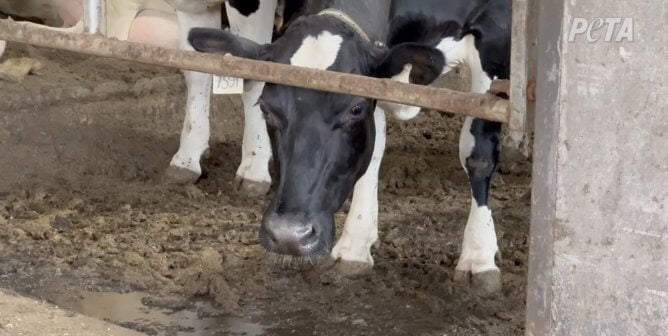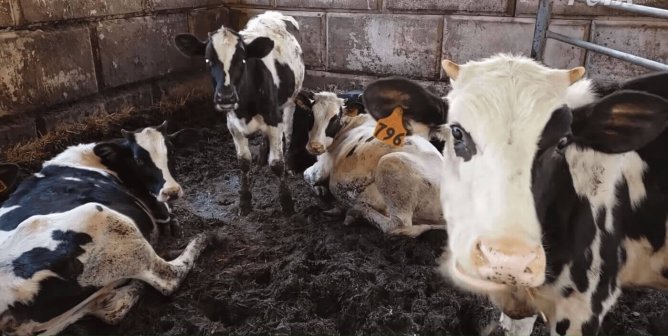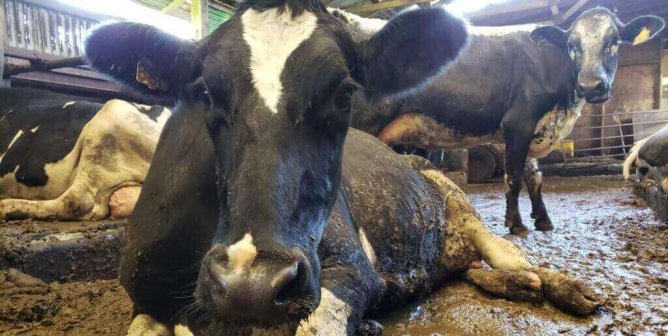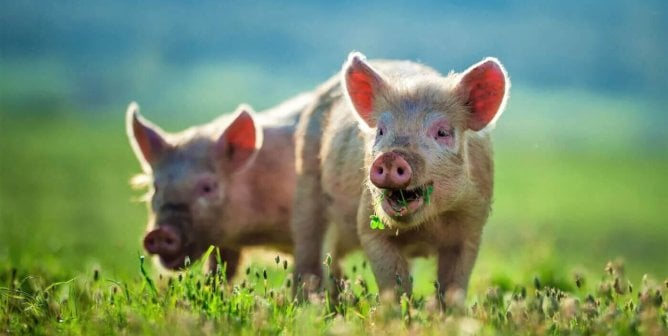Essential Nutrients

We’ve listed some nutrients that people often ask about as well as where to get them. Eating a healthy, balanced mix of vegan foods, including beans, nuts, whole grains, fruits, and vegetables—along with a reliable source of vitamins B12 and D—will give you everything your body needs. If you often eat on the go and don’t always have time for nutritious meals, taking a multivitamin might be a good option.
Calcium and Vitamin D
Calcium is plentiful in the plant world. Good sources of calcium include some dark-green leafy vegetables (such as broccoli, collard greens, and kale), almonds, sesame tahini, calcium-fortified plant-based milk, some brands of tofu, and calcium-fortified orange juice. By choosing these foods and beverages instead of dairy “products,” you can avoid the health risks associated with cow’s milk—for example, the Harvard School of Public Health says that dairy consumption is linked to high rates of ovarian and prostate cancers. Harvard also reports that there is a lack of evidence for a link between the consumption of milk “products” and the prevention of osteoporosis—in fact, studies suggest that heavy consumption of them actually increases the likelihood of bone fractures and mortality.
Sunshine is one of the best sources of vitamin D. During the warmer months, your skin can manufacture enough of the vitamin if your face and forearms are exposed to sunlight for 15 to 20 minutes per day. But during colder and cloudier weather, it’s important to get some extra vitamin D by eating vegan foods containing it or taking a multivitamin or a vitamin D supplement. Many brands of plant-based milks (such as those made from almonds, soybeans, or rice) contain both calcium and vitamin D, as do some brands of fortified orange juice. (If you rarely spend time in the sun or always use sunblock, then it’s a good idea to make sure you get some vitamin D from vegan foods or supplements.)
Iodine
Iodine is a trace mineral that’s important for healthy thyroid function. Table salt is the most common and reliable source of it in the American diet (but the sodium in processed foods usually doesn’t contain it). If you don’t consume table salt, you can get iodine from a multivitamin or kelp tablets. For those who love vegan sushi, seaweed can be a good source of the trace element.
Iron
Iron is found in numerous plant foods, including black beans, cashews, kidney beans, lentils, oatmeal, raisins, black-eyed peas, soybeans, spinach, many breakfast cereals, sunflower seeds, chickpeas, veggie burgers, tomato juice, tempeh, blackstrap molasses, and whole-wheat bread. Studies have found that the type of iron in some kinds of animal flesh can raise the risk of developing diabetes, but the iron in plant foods does not. Consuming foods rich in vitamin C (e.g., citrus fruits and peppers) when you eat iron-rich foods is a good way to increase iron absorption. Because young women—regardless of whether they eat meat—tend to have higher rates of iron-deficiency anemia compared to the overall population, it may be wise for them to take a multivitamin containing iron.
Omega-3 Fatty Acids
There are several good vegan sources of omega-3 fatty acids that may contribute to good heart, brain, skin, and joint health—including flax seeds, hemp seeds, and walnuts (which are also good sources of protein and iron), as well as chia seeds. Unlike fish flesh, these foods are free of dangerous levels of mercury and PCBs. Flax seeds can be found at well-stocked supermarkets or health-food stores and should be ground up in a blender or a coffee grinder (because some of their nutritional content is inaccessible if they’re eaten whole). Try sprinkling flax, hemp, or chia seeds on cereal or oatmeal or adding them to smoothies. You can also pour a teaspoonful or two of flaxseed oil on warm foods, but the oil itself shouldn’t be heated. (Keep flax seeds and flax oil in the refrigerator.)
One of the fatty acids found in fish flesh is docosahexaenoic acid (DHA), which fish ingest by consuming algae. But both fish flesh and fish-oil supplements can contain dangerous toxins. So DHA is extracted directly from algae and offered as a vegan supplement. These capsules can be purchased in health-food stores or online. Doctors especially recommend them for pregnant women.
B12
Vitamin B12 is responsible for helping our bodies make DNA and red blood cells. It’s essential for optimum health, and a deficiency can lead to serious problems, such as anemia and damage to the nervous system. You can get B12 from non-animal sources that have been fortified with it, such as cereals, plant-based milks, nondairy yogurt, and fortified nutritional yeast (a delicious flaky superfood that tastes like cheese and can be added to many dishes). You can also get all the B12 you need from a vegan liquid or pill-based supplement. If you’re concerned that you aren’t getting enough B12, ask your doctor to check during a routine blood test.
Protein
Protein is abundant in plant foods. Vegans should consume a variety of protein sources, including legumes and foods made from them (e.g., beans, peas, lentils, peanuts, peanut butter, tofu, tempeh, edamame, soy milk, and vegan meats), nuts, seeds, quinoa, nutritional yeast, and whole grains. It was once thought that people had to eat various plant foods together in order to obtain their full complement of protein, but current research has shown that this is not the case—eating a variety of nutritious plant foods provides all the protein you need. Unlike animal protein, plant-based protein sources usually also contain healthy fiber and complex carbohydrates. Animal-derived foods are also full of artery-clogging cholesterol and saturated fat, and consumption of animal protein has been linked to some types of cancer. Plus, it’s suspected that the high sulfur content of animal protein weakens people’s bones. For example, a study by researchers at the University of California found significantly less bone formation in meat-eating women than in vegan women.








